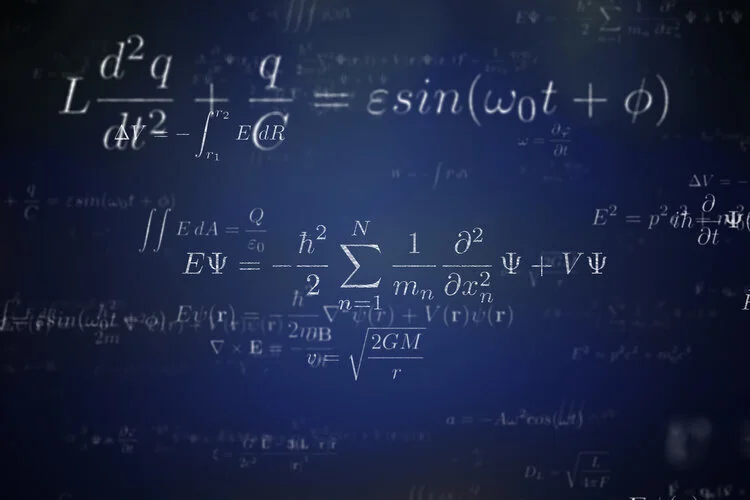Juristen | Juridisch Advies | Contracten
MusicaJuridica BV is een rechtskundig adviesbureau. Iedereen met een juridische vraag of probleem kan zich tot ons wenden: onze clientèle bestaat zowel uit particulieren, het MKB (eenmanszaak en VOF), overheidsinstanties (Rijk, provincie, gemeente), als uit rechtspersonen en multinationals (BV, NV, verenigingen en stichtingen). Ons kantoor is gevestigd in Amsterdam. Neem voor meer informatie over onze juridische diensten gerust contact met ons op. Onze juristen staan u graag met raad en daad ter zijde. Het eerste gesprek is gratis.
For EU AI Act Compliance via our partner Daiki’s patented AI Model Registry, book an appointment here: https://calendly.com/daiki-responsible-ai/daiki-welcome-chat
WELKOM
MusicaJuridica BV verzorgt juridisch advies en rechtsbijstand inzake de volgende onderwerpen en rechtsgebieden:
Intellectueel Eigendom en Auteursrechten
Bedrijfsrecht en Juridisch Advies MKB
Due Diligence, Fusies & Overnames
Contracten en Schadevergoedingsrecht
Algemene Voorwaarden
Merkenrecht
Internationaal Privaatrecht (IPR)
Bestuursrecht
Consumentenrecht
Huurrecht
Europees Recht
Webwinkelrecht
Arbeidsrecht en Sociale Zekerheid
Muziekrecht en Mediarecht
WELCOME
MusicaJuridica BV is a law practice. We provide legal advice and information about these legal topics:
Company Law & Regulatory Compliance
Intellectual Property Law
Mergers & Acquisitions
Contract Law
Compensation Law
Trademark Law
Employment Law
Civil Litigation
Social Security Law
Terms Of Service
European Law
Webshop Law
Private International Law
Music & Entertainment Law
Artificial Intelligence Law
Juridisch advies EN CONTRACTEN CONTROLEREN
Wilt u een contract laten opstellen of controleren of wilt u een bedrijf oprichten dan bent u bij ons aan het goede adres. Heeft u een juridische vraag over een arbeidscontract, een ontslagprocedure of over de algemene voorwaarden van uw webwinkel dan kunt u die aan ons voorleggen. Heeft u als particulier schade geleden en werkt de verzekering niet mee, wilt u intellectueel eigendom beschermen, hebt u een geldvordering, een vraag over internetrechten of bent u in een bezwaar en beroep procedure met de gemeente verwikkeld dan bent u welkom om een en ander aan ons voor te leggen.
Wij spreken uw taal.
Wilt u als ondernemer uw woordmerk of logo laten deponeren dan kan juridisch adviesbureau MusicaJuridica BV u helpen met de merkregistratie bij het BOIP. Bent u app-ontwikkelaar en wilt u de zaken juridisch dichttimmeren dan kunnen wij u terzijde staan met juridisch advies. Wilt u een VOF contract laten screenen of uw eenmanszaak omzetten in een BV dan kunnen wij u hier over adviseren. Wilt u internationaal zakendoen dan kunnen wij fungeren als uw sparringpartner en meedenken over de meest gunstige intellectuele eigendomsrechten strategie. Ons team kan een due diligence onderzoeksrapport voor u opstellen bij fusies en overnames, en u assisteren bij het implementeren van regulatory compliance en conformity. Onze juristen hebben up to date kennis, ruime ervaring en staan graag voor u klaar.
Hoe kunt u dit direct gebruiken?
We hanteren toegankelijke tarieven voor de branche waarin wij werken. Ook voeren wij rechtszaken namens onze cliënten, wij treden dan op als raadsman of raadsvrouw. Het adviestraject verloopt steeds vaker geheel of gedeeltelijk via de elektronische snelweg. Dan bent u een digitale cliënt en verlenen wij juridisch advies online. Een persoonlijk juridisch consult is ook mogelijk. Dus heeft u een vraag of zit u met een juridisch probleem schroom dan niet en neem direct contact met ons op via e-mail of telefoon. U kunt ook het contactformulier gebruiken, dat kunt u vinden op de contactpagina.
Bedrijvendesk
Voor ondernemers en starters heeft rechtskundig adviesbureau MusicaJuridica BV een speciale bedrijvendesk in het leven geroepen, inclusief website. Heeft u als bedrijfseigenaar (eenmanszaak, startup, VOF, BV, NV) behoefte aan juridisch advies over onderwerpen die u als ondernemer tegenkomt, bezoek dan eens onze digitale bedrijvendesk. Daar vindt u ook kennisartikelen over uiteenlopende juridische onderwerpen, steeds in de context van het bedrijfsrecht, het vennootschapsrecht, het internationaal privaatrecht en het handelsrecht. Onze juristen adviseren u op een effectieve manier bij de bedrijfsorganisatie van uw onderneming. Kwaliteit, slagvaardigheid, strategisch denken, snelheid en betrouwbaarheid staat bij hen hoog in het vaandel.
De tekst gaat verder onder de afbeeldingen.
Het wordt nog mooier...
Heeft u behoefte aan juridisch advies MKB, wilt u een bedrijf starten of een webwinkel oprichten of wilt u contractuele afspraken maken over een samenwerkingsverband dan krijgt u van ons starterskorting. Ook voor internationaal recht, zoals het checken van een Amerikaans contract of het invullen van een W-8BEN-E formulier of het W-9 forumlier kunt u bij ons terecht. Voor bedrijfsjuridisch advies verwijzen wij u dan ook graag naar juridisch advies voor bedrijven.
Intellectueel eigendom en auteursrechten
Naast deze algemene juridische zaken verzorgt MusicaJuridica BV gespecialiseerd rechtskundig advies, juridische oplossingen en business solutions voor de muziekindustrie, op zowel nationaal als internationaal niveau. Hier gaat het om muziekrecht, mediarecht en entertainmentrecht. Wat wij in dat verband vaak doen is het beschermen van intellectueel eigendom, bijvoorbeeld door het opstellen van goede muziekcontracten. Ook zorgen we ervoor dat er zoveel mogelijk wordt recht gedaan aan ieders auteursrechten en naburige rechten. Afspraken over muziekrechten leggen we vervolgens schriftelijk vast in een helder en strak geformuleerde overeenkomst.
Maar er is meer...
Wij zitten op dezelfde golflengte als onze cliënten.
Onze juridische diensten zijn toegesneden op de bijzondere en gespecialiseerde juridische eisen van muzikanten, componisten, tekstschrijvers, arrangeurs, artiesten, DJ's, muziekuitgeverijen, (internet)radiostations, televisiestations, muziekleveranciers, ontwikkelaars van music apps, DJ-platforms, tech startups, webhosting en ISP bedrijven, social network sites, bedenkers van innovatieve concepten op muziekgebied, gamedevelopers, website-eigenaars, music startups en scaleups, reclamebureaus en festivals.
Juristen
De juristen van MusicaJuridica BV zijn - al naar gelang hun specialisme - lid van de betreffende wetenschappelijke vakvereniging. Zoals de Vereniging Voor Auteursrecht. Onze juristen verlenen naast bedrijfsrecht ook gespecialiseerde diensten op het gebied van intellectueel eigendomsrecht alsook muziek en recht.
Hierbij moet u denken aan juridisch advies en informatie over:
Muziekcontracten zoals licentieovereenkomsten, labeldeals, distributiecontracten, opnamecontracten, muziekuitgave overeenkomsten, streaming, hosting, mediarecht, synchronisatiecontracten voor audiovisuele media producties, 360 graden overeenkomsten, copyrights, licensering, publishing, covers, remixen, gebruik van samples, clearance, master use contracts, isrc en upc codes, performance rights organizations, royalties, buma rechten, stemra, sena, norma, combinatielicenties en licentieovereenkomsten.
Bedrijfsrecht, Entertainmentrecht en Online Platforms
Denk verder aan dienstverlening op het gebied van het bedrijfsrecht, entertainmentrecht en online platforms. Onze dienstverlening strekt zich voorts uit over het portretrecht, auteursrecht, het publiek domein, artiestenbemiddeling, contract onderhandelingen, fiscaliteiten, toestemming van worldcopyrightholders voor het uitgeven van arrangementen van muziekstukken of populaire nummers buiten het publiek domein, artiestencontracten, producercontracten, contracten met omroepen, licensing, muziek-uitgave, digitale exploitatie, distributie, privacyrecht, ondernemingsrecht, algemene voorwaarden, labelcontracten, optreden tegen schendingen van het downloadverbod, het registreren van een geluidsmerk, juridische vertalingen, merchandise contracten, muziekrecht en merkenrecht.
De contracten kunnen worden opgesteld in het Nederlands, Engels en/of Duits.
En dat is nog niet alles...
Ook verzorgt MusicaJuridica BV informatieve en educatieve diensten, zoals voorlichting en begeleiding ten behoeve van de muziek en entertainment industrie. Daarnaast geven wij geregeld interviews over actualiteiten rondom het muziekrecht, over startups en algemene contractenrechtelijke aangelegenheden. Tenslotte zijn wij beschikbaar voor het geven van vakinhoudelijke lezingen, PAO en colleges aan Universiteit, Conservatorium en Hogeschool.
Maatschappelijk Verantwoord Ondernemen (MVO) is een essentieel onderdeel van onze bedrijfscultuur.
Neem voor meer informatie, een adviesaanvraag of een gesprek met een juridisch adviseur vrijblijvend contact met ons op. Wij verlenen ook online juridisch advies.
Hier tenslotte het websiteadres van de Engelstalige versie van deze site: www.musicajuridica.com






















